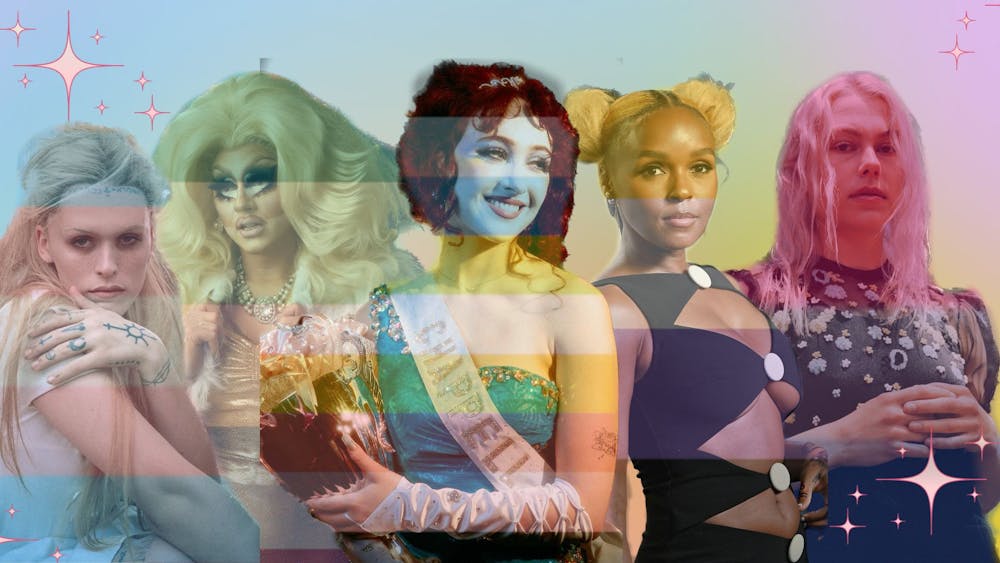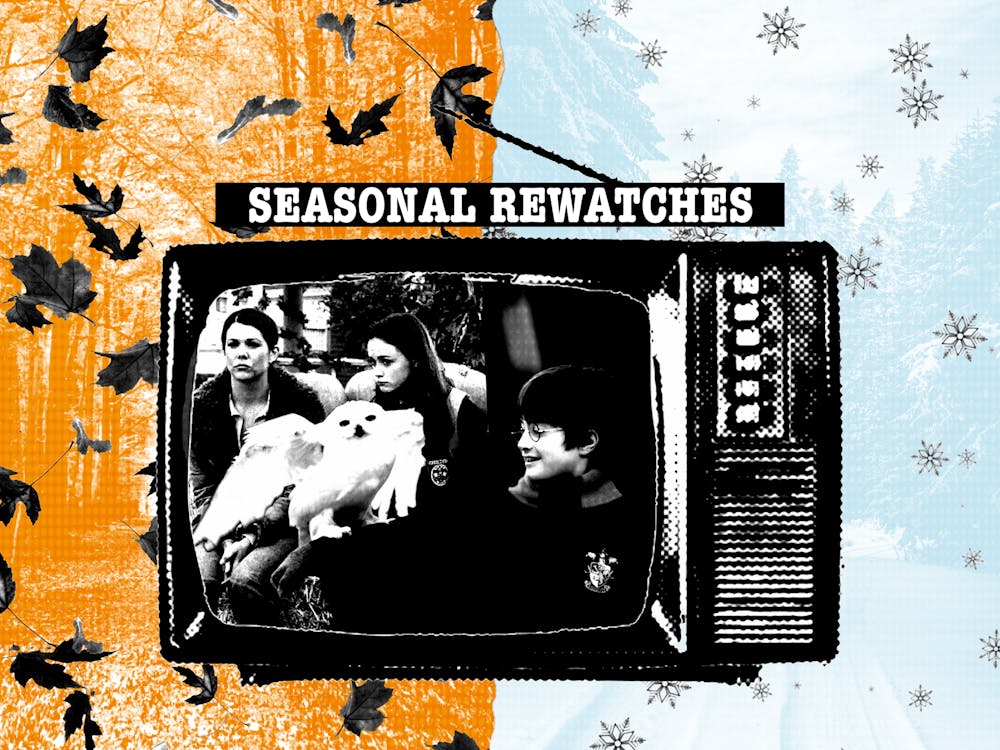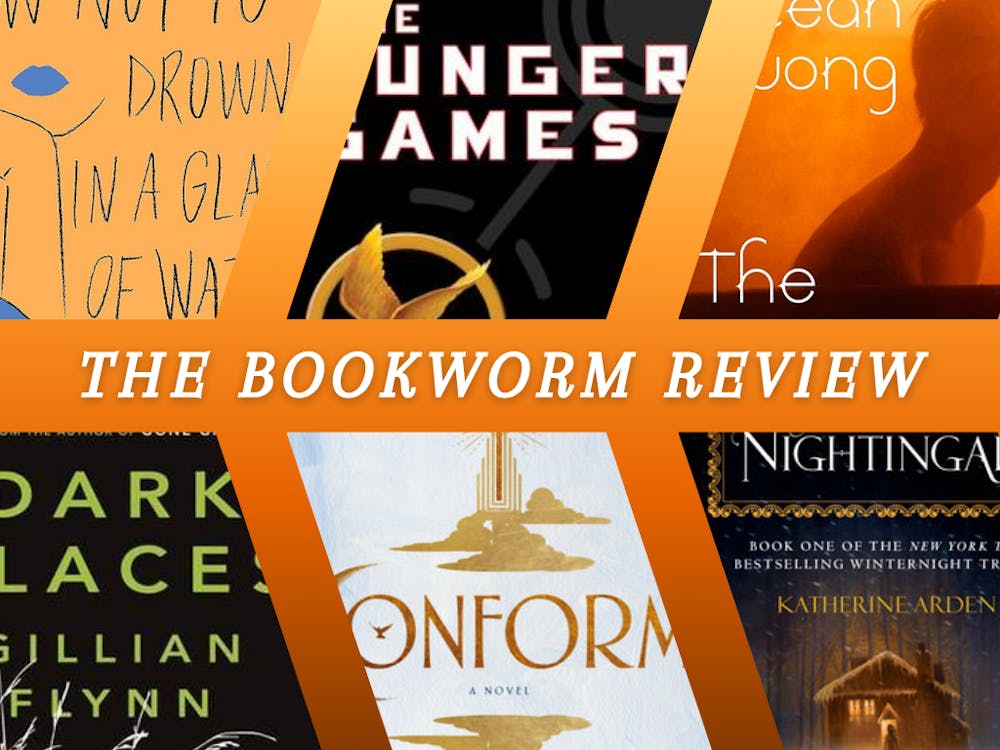As long as there’s been a music industry, there have been queer pop stars.
From artists who were never publicly out like Lesley Gore and Liberace, to artists who fiercely challenged social norms and gender roles in the ’70s and ’80s like David Bowie, Freddie Mercury and George Michael, people in the LGBTQ+ community have always had a presence in music.
These artists paved the way for those we know today. Without their contributions and the way they unapologetically embraced their identities, we wouldn’t have as many out and proud musicians as we do now.
Recently, I was struck by a thought. Chappell Roan, a sapphic pop singer, released her debut album “The Rise and Fall of a Midwest Princess” in September. It’s a fantastic collection of songs, and I highly recommend giving it a listen.
That aside, Roan’s album made me think about the state of pop music today. Pop music, in my opinion, has been on a steep decline since 2015. If you asked me to name a song on the radio today, I don’t think I could.
But “The Rise and Fall of a Midwest Princess” gave me hope.
Roan is everything a pop star should be. She has a lively stage presence, a terrific grasp on pop sound and has her own unique qualities to differentiate her from others. She sings of sapphic relationships and features local drag performers at her shows.
This got me thinking about other queer artists who aren’t just making waves in pop, but the music industry as a whole.
Immediately, Ethel Cain and Kim Petras both came to mind — two transgender women with millions of listeners. Cain has put her own personal twist on the alternative genre, intertwining it with elements of Christianity and country gaze. Meanwhile, Petras is a total pop star, creating campy, electronic dance music. Both have made some of the most compelling work to come out of their respective genres in years.
Speaking of pop, it’d be a tragedy not to mention Lady Gaga, Sam Smith and Janelle Monáe. Gaga has been openly bisexual since 2010 and has spent her entire iconic, genre-bending career advocating for queer rights. Smith and Monáe both identify as nonbinary and have released some of the most solid-sounding pop records in the last 10 years.
Indie/alternative rock supergroup boygenius released its debut album, “the record,” last March. It received an outpour of love from both new and old listeners, skyrocketing the group even further into success. “the record” is a refreshing take on indie and alternative rock genres, and it’s made an enormous impact on the queer community, as all three members of boygenius identify as LGBTQ+.
boygenius recognized this impact in an interview with Them. The trio is making music for their younger selves, and remaining unapologetically and visibly queer is a large part of that.
Enjoy what you're reading?
Signup for our newsletter
Even in the rap genre, artists like Lil Nas X and Tyler, The Creator — both queer men — are producing some of the most unique records and live performances. Lil Nas X especially has brought queer representation into rap with several hit songs such as “INDUSTRY BABY,” “MONTERO (Call Me By Your Name),” “THAT’S WHAT I WANT” and more.
Drag queen Trixie Mattel has brought a strong queer presence into country music and has collaborated with fellow gay country singer, Orville Peck. Mattel’s music strays from the stereotypical country sound, mixing elements of pop and avoiding cliche lyrics about women, trucks and beer. She’s carved a space for drag in the country genre, and much like her drag career, her music is simply amazing.
I could go on forever about all of the great, queer musicians we have today. Their presence alone is powerful. Queer people are being represented in mainstream media now more than ever, especially in the music industry.
It makes me happy to know that young, queer people now have so many role models to look up to. It’s important for people to see others like themselves in the media.
I have no doubts that without the many queer artists who are constantly producing unique, enthralling work, the music industry would be suffering. Everything would sound and look the same.
So, instead of praising allies who don’t speak out on serious issues and have co-opted a queer identity such as Harry Styles, or artists who are simply speculated to be queer like Taylor Swift, it’s time to give the authentic, queer musicians the flowers they deserve.
The queer community has such a special way of expressing art, especially through music, and I’m so grateful to be alive during a time in which it can do exactly that both fiercely and unapologetically.




